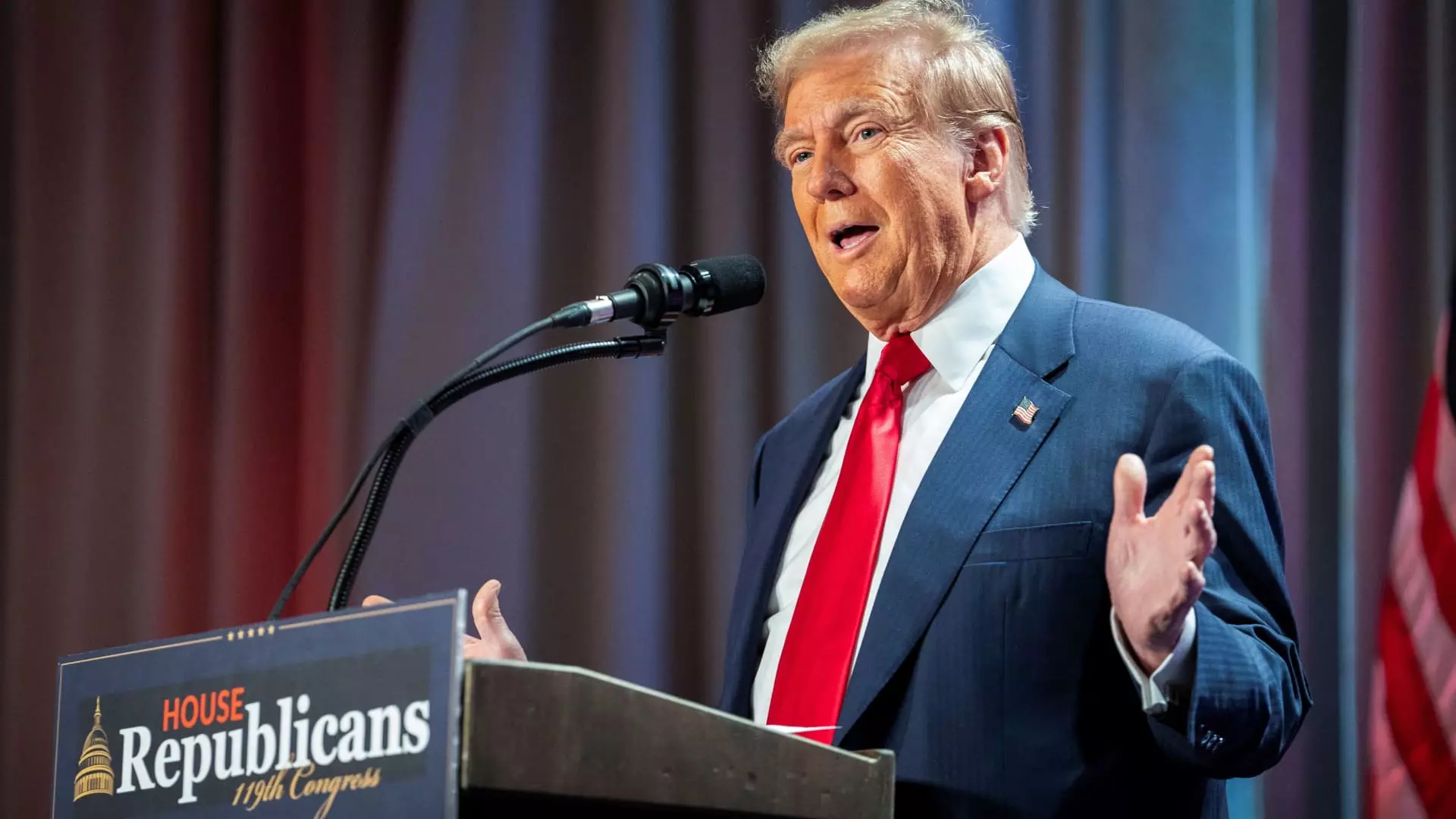With the transition of power following the 2024 election, the appointment of Chris Wright as head of the Department of Energy (DOE) marks a significant pivot in U.S. energy policy. As a prominent figure in the oil and gas sectors, his ascension reflects President-elect Donald Trump’s commitment to a particular vision of energy independence driven by fossil fuels. This article delves into the implications of this choice, examining both the potential advantages and challenges posed by a fossil fuel-centric leadership within an evolving energy landscape.
Chris Wright, the founder and CEO of Liberty Energy, is not only an executive with extensive experience in the oilfield services industry but also a vocal opponent of mainstream environmental narratives. His advocacy for fossil fuels is seen not just as a professional stance but as a philosophical one. Wright’s dismissive attitude towards climate change activists—declaring, “There is no climate crisis”—reflects a broader skepticism about the urgency of the climate crisis that has captured mainstream discourse.
Having no prior political experience, Wright’s selection raises questions about his capability to navigate the complexities of energy diplomacy and federal oversight. His bold media performances, such as consuming fracking fluid to debunk safety myths, have made him a notable figure in energy advocacy, though they also spark concerns regarding the promotion of scientific rigor in policy-making.
Wright’s expected policies align closely with Trump’s overarching strategy aimed at maximizing the United States’ production of oil and gas. This approach intends to capitalize on America’s vast natural resources to boost economic growth and energy independence. Yet, such a focus may hamper the long-term transition towards renewable energy sources, which are increasingly deemed vital to combating climate change.
Under Wright’s leadership, the DOE could play a critical role in augmenting the country’s energy output at a time when demand is poised to rise—fueled by technological advancements in artificial intelligence and the electric vehicle sector. However, while advocates argue that fossil fuels can provide economic rejuvenation and energy security in the short term, detractors warn that reliance on these resources can perpetuate environmental degradation and stymie progress toward sustainable energy solutions.
Wright’s appointment also signals a notable shift in the political landscape concerning energy policy. The incoming administration’s alignment with fossil fuel interests reveals a stark departure from the previous administration’s push for a diversified energy portfolio that emphasized renewables. Under the leadership of Jennifer Granholm, the DOE supported infrastructure aimed at carbon-free energy perspectives, setting ambitious climate goals.
The challenge for Wright will be to create a coherent energy policy that balances fossil fuel advancements with the demands for cleaner energy sources and addresses the Biden era’s environmental commitments. Moreover, the sensitivity of climate change policy in today’s political climate places additional pressures on Wright to justify an approach that fundamentally opposes the mainstream evolutionary path toward sustainable energy.
If confirmed, Wright’s responsibilities will encompass overseeing critical aspects of U.S. energy infrastructure, including the Strategic Petroleum Reserve and federal support for emerging technologies. His leadership could reshape how energy transmission and nuclear energy expansion are handled, both of which are vital elements of modern energy strategy. Though nuclear power enjoys bipartisan interest, the complexities and costs of permitting nuclear projects present ongoing obstacles.
As demand for electricity rises, spurred by new technologies and economic factors, the strategies implemented under Wright’s leadership will significantly influence whether the U.S. can meet these needs sustainably. The Department of Energy’s role in balancing the promotion of fossil fuel production with the adoption of renewable technologies could determine the country’s energy trajectory for years to come.
The selection of Chris Wright as the head of the Department of Energy symbolizes a pronounced reliance on fossil fuels within the Trump administration’s energy strategy. While this decision may catalyze short-term economic growth and energy independence, it raises critical questions about the long-term sustainability of such an approach. As the United States stands at a crossroads in energy policy, the implications of Wright’s leadership will undoubtedly resonate across environmental, economic, and political domains in the coming years.



Leave a Reply